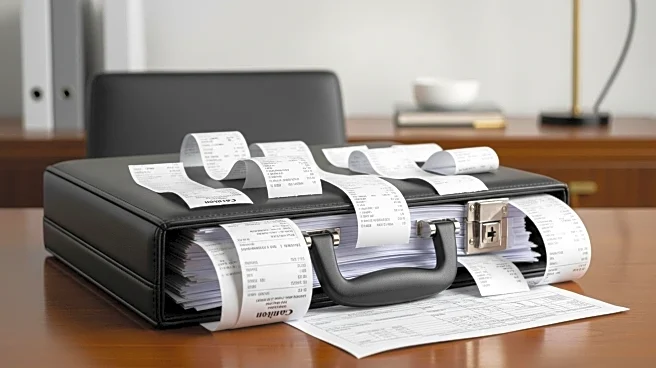What's Happening?
Northwestern Mutual has filed a lawsuit seeking a tax refund of over $23 million related to meal write-offs for its corporate cafeterias. The company argues that it and its employees should not have paid taxes on meals provided at its Milwaukee headquarters and suburban office. The lawsuit highlights the complexity of tax incentives tied to business meals, with changes in tax laws affecting deductions for onsite cafeterias. The IRS has challenged Northwestern Mutual's use of tax exemptions for meals, citing inconsistent justifications for disallowing claims from 2014-2015 and 2018-2019.
Why It's Important?
The lawsuit underscores ongoing tensions between large corporations and the IRS over tax deductions for employee meals. Changes in tax laws could impact how companies budget for employee perks, potentially leading to reduced benefits. The case reflects broader challenges in tax compliance for businesses, as rules governing meal deductions have evolved over the years. Companies may need to reassess their policies and documentation practices to adapt to new regulations, affecting employee benefits and corporate expenses.
What's Next?
The outcome of Northwestern Mutual's lawsuit could set a precedent for other companies facing similar disputes with the IRS. As tax laws continue to change, businesses may need to consult with advisors to navigate the complexities of meal deductions. The case may take years to resolve, similar to other high-profile tax disputes, and could influence future legislative changes regarding employee meal benefits.
Beyond the Headlines
The legal battle highlights the intricate relationship between tax policy and corporate benefits, raising questions about the fairness and consistency of tax regulations. It also points to the need for clearer guidelines to prevent disputes and ensure equitable treatment of businesses across different sectors.










